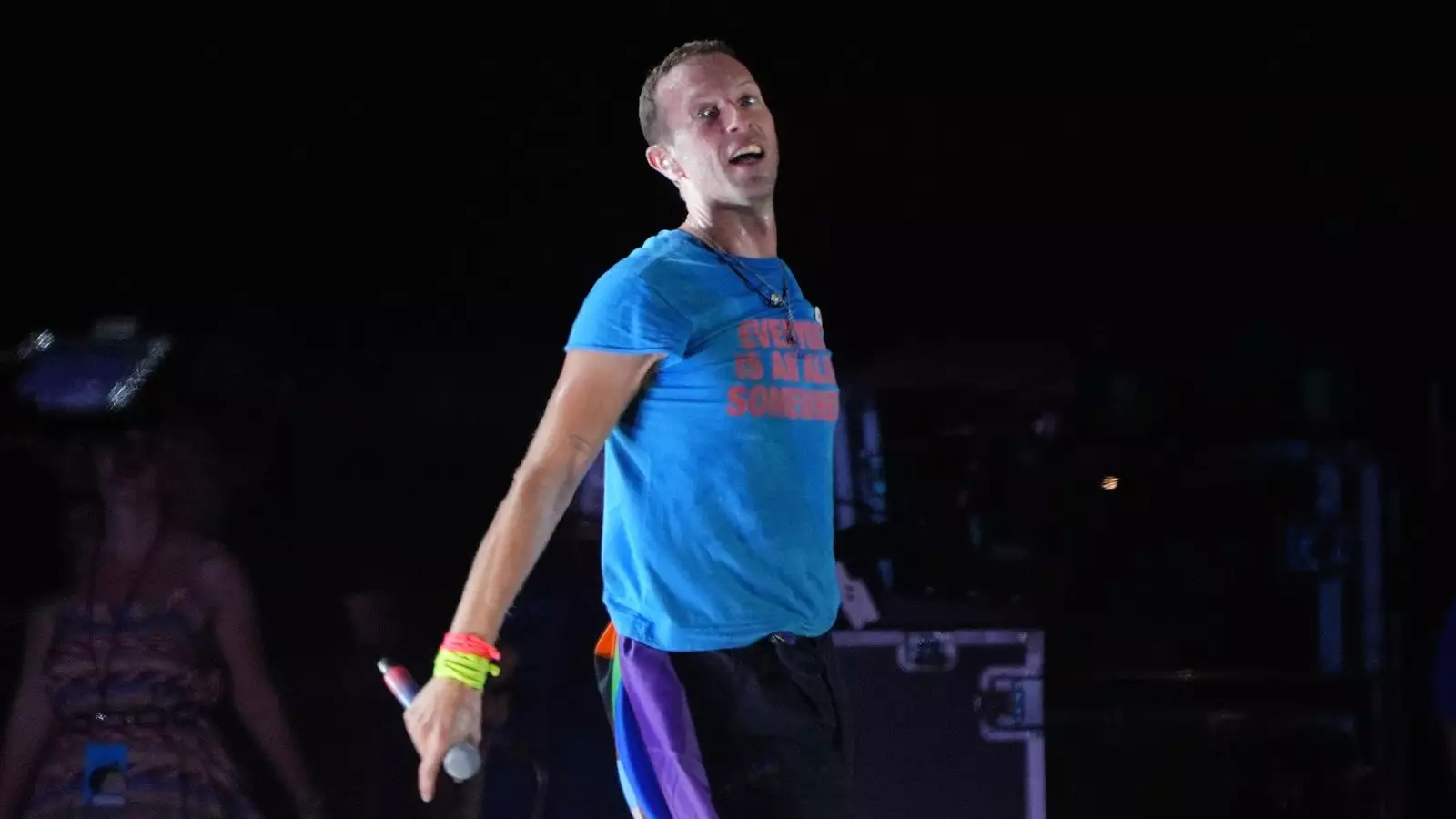The Glastonbury Festival, renowned for its eclectic lineup and vibrant atmosphere, witnessed a landmark moment when Coldplay headlined the event for the fifth time, making history as the first band to achieve this feat. This record-breaking performance was more than just a concert; it was a heartfelt reunion with a devoted audience that has followed Chris Martin and his band through the ups and downs of their illustrious career. For many in attendance, the experience was akin to returning home, as they reveled in familiar melodies and stirring lyrics that have soundtracked significant moments in their lives.
Coldplay’s journey to this point has been marked by numerous successes, with their fifth Glastonbury headline set serving as a testament to their staying power in the music industry. While critics have frequently labeled their music as formulaic or mundane, the sheer size of the audience at Worthy Farm speaks volumes. The band’s ability to engage a crowd is undeniable; their performances are meticulously crafted to evoke emotion and create memorable experiences. Chris Martin’s comments about the diverse audience exemplify the sense of community that Glastonbury fosters, creating a powerful shared moment for all involved.
As the sun set, casting a golden hue over the grounds, the band opened with “Yellow,” sending the audience into a collective nostalgia trip. This song marked the beginning of their journey and set the tone for the night—one filled with reflection, celebration, and an acknowledgment of their growth as artists. As they transitioned through their extensive catalog, featuring classics like “Viva La Vida” and “Higher Power,” every note played drew cheers and laughter from the crowd, reinforcing their position as one of the UK’s most beloved bands.
What made this performance particularly remarkable was the guest appearance of iconic actor and philanthropist Michael J. Fox during the emotional anthem “Fix You.” This collaboration blurred the lines between music and cinema, adding another layer to the already poignant moment. The juxtaposition of a Hollywood icon strumming the guitar alongside a world-famous band left an indelible mark on the audience, showcasing the festival’s ability to unite various forms of art and its practitioners. It was a reminder that the Glastonbury stage serves not only as a platform for musical performance but also as a creative hub for diverse talent.
Elsewhere in the festival, other artists also contributed to the electric atmosphere. Kasabian’s surprise set and Mike Skinner’s engaging performance with The Streets kept the energy high, reflecting the plethora of talent showcased at Glastonbury. The festival’s draw is its diverse programming; even if Coldplay was not to one’s taste, there were countless other artists and performances to enjoy, from hip-hop to indie rock, ensuring there was something for everyone.
In the lead-up to their performance, Coldplay faced the brunt of critics who dismissed their presence as predictable. This enduring criticism, however, raises an important question about the nature of music and live performance: should artists be penalized for their popularity? While some may scoff at the predictable nature of Coldplay’s setlist or their emotional approach, the outpouring of love from their fans at Glastonbury illustrates the profound impact they have had on audiences over the years.
The reality is that music is subjective; for every detractor, there are scores of supporters who revel in the band’s uplifting sound and heartfelt lyrics. In an event as grand as Glastonbury, where the stage is shared by countless talents, it is refreshing to see an act like Coldplay remain committed to their craft while creating significant moments that resonate deeply with their fans.
The juxtaposition of Coldplay’s performance with the supportive buzz from Glastonbury signifies not only the band’s importance in the music landscape but also the festival’s role as a nurturing ground for creative expression. Their fifth headline performance will undoubtedly be remembered not just for the music, but for the emotional connections it fostered. As fireworks lit up the night sky and the crowd sang in unison, it became clear that Coldplay’s presence at Glastonbury was a celebration of shared experiences, artistry, and the power of music to unite people across generations. In an age where music criticism often drowns out the conversation, events like these remind us of the joy that lies in communal celebration—the essence of Glastonbury.


Leave a Reply